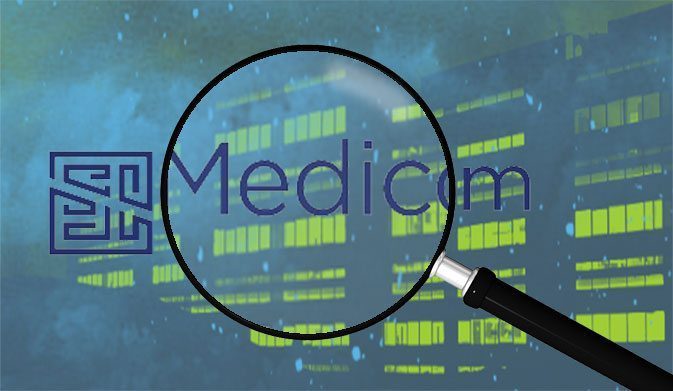
When change processes lead to learning

Medicom Innovation Partner handles deviations and change processes in practical terms with a focus on colleague involvement and training. Read how in this interview.
Medicom Innovation Partner A/S produces medical equipment. This is the second part of an interview with QA manager Søren Lyngsø-Petersen from Medicom Innovation Partner – a company with 85 employees who make medical equipment. You can read more about the company in the first part here.
Encountering deviations
I asked Søren Lyngsø-Petersen how they handle deviations. Here he said that all deviations are reported in the company’s deviation system. If the deviation is a very specific problem, Søren Lyngsø Petersen says that one of the most important elements in their CAPA process is Causation Analysis. Here they specifically involve people who know something about the deviation. Once all knowledge is in place, the Preventive Actions are implemented. He says: It is solved immediately, but if it is a more general issue that affects other areas, a CAPA (Corrective And Preventive Action) is initiated.
Søren Lyngsø Petersen says that one of the most important elements in their CAPA process is Causation Analysis. Here they specifically involve people who know something about the deviation. Once all knowledge is in place, the Preventive Actions are implemented. He says:
”It’s a very structured process, which the authorities require us to run very stringently. One of the hardest things may be, in part, the annual analysis, but we have tools to help us with that. The hardest thing is to measure the effectiveness of our improvements.”
Measuring effectiveness is an area that received a lot of focus in the Medical Device industry. Therefore the stringent process helps ensure that errors and challenges are solved in the most appropriate and effective way.
Søren Lyngsø Petersen says that deviations frequently result in an updating of procedures or agreements, and often – if not always – it also entails an update to their QMS system:
”As soon as we update a QMS procedure, it is applied all over the company. In that way, we ensure that experience with a single deviation becomes at training that benefits everyone else. That’s the trick.”
Søren Lyngsø-Petersen adds that everyone is also notified about updates and changes to the QMS system via their electronic system and e-mail. Here, everyone is asked to read the updated procedure and acknowledge electronically that this has been read and understood.
In collaboration with the QA engineer associated with the individual project, the QA department is responsible for all change processes being implemented correctly. In addition, they also have internal audits, where they follow up and ensure that everyone is familiar with the latest procedures.
How change processes are implemented
I asked Søren Lyngsø-Petersen how they integrate the change processes in practical terms. Here, he described a concrete change process from their production, where they needed to implement new requirements for shoe protection:
”And that was a real change process because, for 20 years now, there was no requirement to use shoe protection”.
He says that the challenge in this change process was to include all the production staff in the process, so they could influence the decisions that would affect their workflow. This was done in combined meetings and by using the production team leader as a liaison between management and the production employees. Søren Lyngsø-Petersen stated that in addition to this, he constantly focused on notifying production directly when decisions were made. Søren Lyngsø-Petersen explains that this change was made without any problems and concludes:
”So I am a believer in the inclusion thing, to the extent it is possible”.
That was the last word this time around from Søren Lyngsø-Petersen, the QA manager at Medicom Innovation Partner A/S. We will be back soon with another case and a new perspective.
Frequently Asked Questions
The specific strategies that were put into place in order to improve efficiency at MediCom primarily centered around implementing Gluu’s platform and digitizing their workflows. MediCom transitioned from using manual, paper-based processes and focused on digital automation to streamline operations and improve efficiency. This transition was made smoother by the flexibility and adaptability of Gluu’s platform, which was crucial in managing the changes.
The complete transformation of MediCom’s change processes lasted about two years. Beginning in 2017, the organization embarked on a journey to overhaul its practices, with the majority of changes implemented within first year. The next year was then spent refining these changes and ensuring that they were fully embedded into daily procedures.
As for the success of Gluu’s implementation, there are indeed several metrics that demonstrate its impact. For example, there was a significant reduction in manual administrative work, pointing to an efficiency increase in non-clinical operations. Additionally, according to employees, there was a noticeable improvement in cross-departmental cooperation and communication, which led to smoother, more effective workflows. Although exact figures have not been disclosed, these positive feedback clearly indicates the successful implementation of Gluu’s platform in MediCom’s workflow processes.



